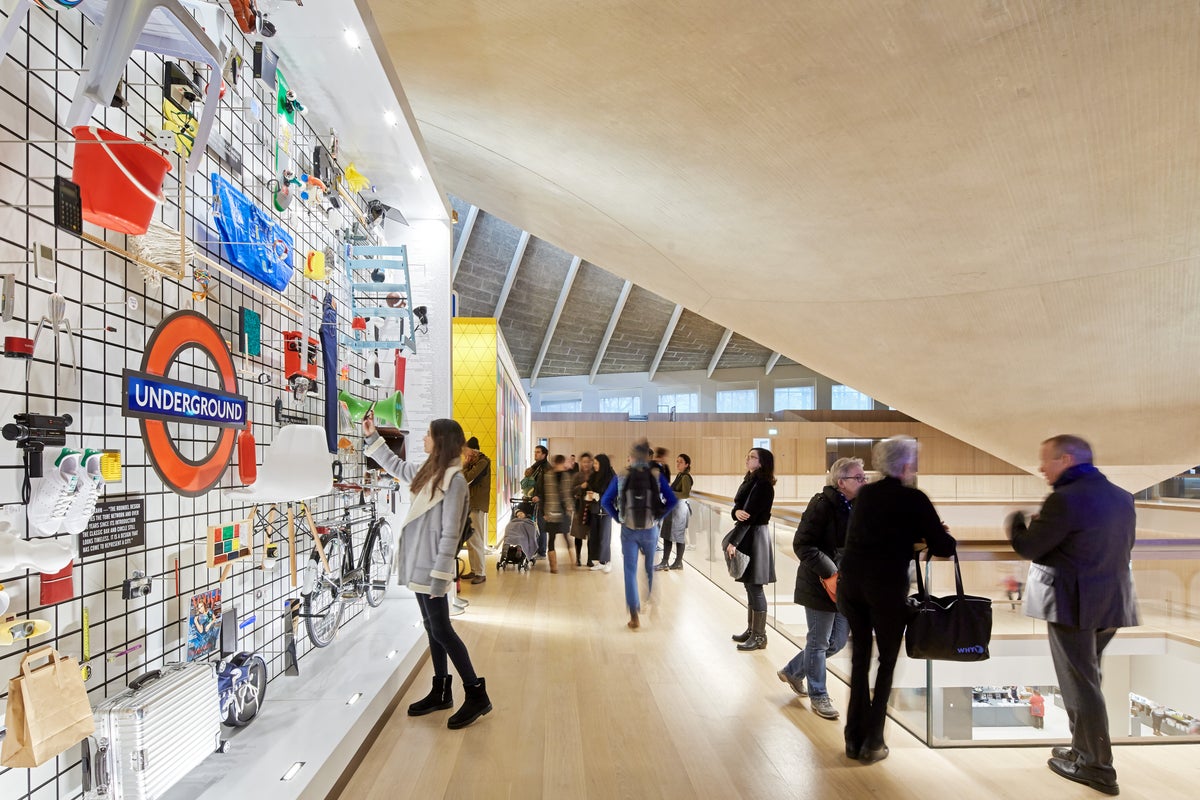How digital magazine Remezcla is helping brands reach young Hispanic audiences
The Latinx culture magazine and creative agency has grown its revenue over 150% so far this year.

Brands on the Rise is a regular Ad Age feature spotlighting the marketing and business tactics of successful challenger brands. Read other installments here.
When Remezcla launched in 2006, “Latin culture was, like, one radio station or maybe two channels and that was basically the makeup,” said Andrew Herrera, CEO and co-founder of the digital Latinx youth culture magazine. But now, with the Hispanic population accounting for 19% of Americans, Latinx culture is mainstream—meaning brands must find new ways to cater to the audience and its rising purchasing power. And Remezcla has emerged as a go-to resource for brands looking to do just that.
The company, majority owned by Herrera, now houses a creative agency and, most recently, a production studio in addition to the magazine. It has lured business from brands including McDonald’s, Cheetos, Brooklyn Museum, Netflix, Tecate and Major League Baseball, which has hired Remezcla as its multicultural agency of record.
All the while, Remezcla keeps growing its media business. It has evolved from a blog-style city guide for the New York Latin music scene to cover Latinx art and culture more broadly, and pulls a majority Gen Z audience within the 15 million it reaches each month across its owned channels. And while legacy Spanish-language media companies including NBCUniversal-owned Telemundo and TelevisaUnivision may achieve larger scale, Remezcla fills a void in reaching young, progressive, bilingual Hispanics with authenticity for the community that’s grown stronger and more vocal, particularly during the Trump administration, said Michael Roca, managing director of DE&I investment at Omnicom Media Group.
“If we look at Gen Z and Gen Alpha, almost one out of every four Gen Alphas is Hispanic—and they’re influencing culture,” Roca said, citing the growing popularity of reggaeton and musicians like J Balvin, Bad Bunny and Rosalía. “Just look at Spotify—of the top songs this past summer, half of them were in Spanish.”
Remezcla has grown its revenue in 2022 by over 150% and its media revenue, inclusive of all ad-supported published content, has rocketed 1,100% since the beginning of the pandemic.
Below, more on Remezcla’s origin story, marketing tactics and what is next for the brand.
How it started
Remezcla began as a group of young Latinx music writers and enthusiasts—Claire Frisbie, Nuria Net and Herrera—documenting what Herrera referred to as an underground music scene alternative from the few mainstream channels of coverage for Latinx culture.
“It became the early stages of influencer marketing,” said Herrera. “We were highlighting people that were impacting culture regardless of how big they were in the moment, but it was really about how big they were going to get.”
The group decided to publish content in English to acknowledge the increasingly bicultural nature of the publication’s initial target demographic, bicultural millennials. While legacy media brands targeting Latinx communities favored Spanish-language content, “we came from this youthful mindset of we didn’t want to relive our parents’ culture,” said Herrera. “We were looking at where the culture was going.”
The publication now covers not only music but also culture, sports, film and food. Herrera said in the decade and a half since its inception, Remezcla’s audience has shifted from an outlet that Latin music enthusiasts in their mid-20s were discovering to younger readers who have grown up on it. He identified the Trump presidency specifically as a period when Remezcla developed a stronger voice on social issues and became more of a rallying point for the Latinx community.
In 2012, Remezcla opened its own creative agency, sharing its sibling magazine’s goal of growing media representation for and pushing culture forward within the Latinx community. The curation of experiential events was a natural extension for the company already steeped in the culture and the agency evolved over time to include social marketing then full strategy and creative services. The agency’s website lists accolades from the ANA Multicultural Excellence Awards, Clios, One Show and Webbys.
Remezcla partnered with McDonald’s as an expansion of its Saweetie celebrity meal campaign. The agency created a tutorial for themed nail art, “a long-time fashion staple in hip hop and reggaeton culture,” according to the agency’s website. Recruiting Latinx nail tech Juan Alvear, Remezcla produced a video of Alvear designing a set of acrylic nails representing the elements of Saweetie’s meal. The campaign surpassed the partnership’s impression goal by 32% and won the Instructional Video category at the Shorty Awards.
The agency is also digital and culture agency of record for Heineken-owned Tecate Beer. For the launch of Tecate’s Alta line of beverages in early 2021, Remezcla created a series of digital performances from music acts Chicano Batman and Intocable.
The videos, meant to instill the music festival experience for audiences quarantined at home, were filmed in the California desert and meant to evoke Tecate’s Baja California origins. More recently, Remezcla produced a docuseries and live performance called “Tecate Alta Sinfónica.” The concert, which took place Oct. 1 at San Francisco’s Herbst Theater, featured the San Francisco Philharmonic and its founder and conductor Jessica Bejarano as well as hip hop artists Snow Tha Product, Los Rakas and Oscar Cortéz. The docu-series explores the conductor’s life and inspiration for the series with more entries to come showing the concert and behind the scenes of its creation.
This year, Remezcla debuted Remezcla Studios, a production arm specializing in original music, films, experiences and branded content. One of its first projects was for Major League Baseball, for which Remezlca is currently multicultural AOR. Remezcla and MLB premiered a three-part docuseries on the culture and fandom around Latin-American baseball. “Fuera Del Ballpark” aired episodes across MLB’s social and digital channels during Hispanic Heritage Month from mid-September to October.
Tipping point
Herrera said an early moment in which he recognized Remezcla’s full potential was in 2011 when the magazine was tapped to curate a three-week culture series for Heineken called “The Spot” in New York City. Remezcla designed a pop-up venue, with ideas Herrera said were far too ambitious for their budget in hindsight, with different nights devoted to Latin art, music and film. It was the first “opportunity to show Remezcla in real life,” said Herrera.
“What came out of it was actually people being able to see what we were talking about—that [Latin] culture was much bigger than people thought it was: 20-plus different countries, five boroughs, art, film and music,” said Herrera.
The event was the first project from Remezcla’s creative agency that would officially form soon after as well as a calling card for the company. Herrera said “The Spot” made brands more willing to take a chance on them, despite “competing with companies 10 times, 100 times our size.”
Omnicom Media Group’s Roca said another tipping point both for Remezcla and diverse-owned and targeted media has occurred within the past five years. In the early part of the century, brands used a so-called total market strategy with the idea that “America is becoming more diverse, so we could reach all audiences with one media plan and one creative.”
Since then, the need and desire for authentic communication with diverse audiences, underserved by one-size content and marketing, has grown—heightened especially during the Trump administration when political discourse so frequently revolved around immigration and border control.
During that time, “Hispanics reclaimed their voice in terms of ‘hey, like, we’re 20% of the population,’” said Roca. “Remezcla was able to see this and say, ‘There’s something changing in the atmosphere here and we need to create content that fills the void that has been absent.’”
Converging with the political tumult was the killing of George Floyd and the rise of the Black Lives Matter movement, which amplified conversations around race and inclusion throughout the nation and inspired many brands to declare greater investment in diverse-owned media. To help marketers maintain their commitments, Omicom Media Group started a twice-a-year marketplace event in which brands can meet and explore collaboration with diverse-owned and targeted media brands. Roca said Remezcla is a frequent participant in the event.
“Diversity is everyone’s responsibility; however, you need cultural experts that keep their finger on the pulse of what’s happening because it’s changing,” said Roca, identifying Remezcla’s expertise in connecting with and tailoring sponsorships to its audience. “If you don’t have someone who’s continually lighting the flame, the flame goes out.”
Marketing strategies
When Remezcla first launched, the brand was focused on building its audience ecosystem solely on its site. Since those early days of digital publishing, the media landscape has expanded and fragmented across screens at a rapid pace. It’s not only now necessary to reach audiences across platforms but to engage uniquely with those audiences in ways that are organic to the platform.
Herrera said Remezcla views its digital and social channels not just as marketing tools, but as opportunities to make content specifically for those fans in the language of their social platform of choice. The team also hopes to make a bigger impact on larger screens beyond just the digital space as Rezcla Studios develops its capabilities.
“That’s been our approach to growth: we know that audiences are in different pockets in different places, and so we know that we have to show up in those frontiers with formats that are relevant on those platforms,” said Herrera.
What the experts say
OMG’s Roca said Remezcla’s strength lies in its authenticity to Latinx culture—the brand has invested in the community and built strong relationships, particularly with what he called “the 200-percenters,” or bicultural youth immersed in both English and Spanish-language communities. For its readership, Remezcla “has done a great job in serving them the content that is really absent from mainstream media,” said Roca.
For brands looking to reach diverse audiences, Roca said Remezcla’s unique offering is its bond with the Latinx community. While big company-backed media brands in the space provide large scale, Remezcla provides intimacy and can stretch a client’s spend further.
“We could reach audiences with Disney, NBCUniversal and Paramount all day, but if you’re not connecting with them from a culture perspective, that’s a whole different conversation,” said Roca. “That is really what gets audiences to lean in and say, ‘That brand is actually talking to me. They understand my values.’”
In early 2022, Lexus partnered with Remezcla to promote its Lexus NX vehicle. The collaboration featured a series of videos from singer Esty as well as sponsored content on Remezcla’s site.
Lisa McQueen, Media Manager at Lexus, told Ad Age the goal of Lexus’s partnership was to do precisely what Roca said Remezcla does best. Through the content, Lexus connected “with young Hispanic shoppers through their love of culture and music,” said McQueen, adding that Lexus was also able to “leverage Remezcla’s music discovery platform to support emerging artists.” McQueen said that investing in diverse-owned media is a priority for Lexus and has been historically.
“Remezcla created highly engaging content that appealed to their audience,” said McQueen. “The performance exceeded benchmarks for video views, social engagements and site conversions.”
What’s next
Herrera said Remezcla’s first phase was about “us being curator and creator at the same time.” The next phase will focus on supporting and distributing content from other creators in the Latinx community as the brand looks to become a larger presence in entertainment.
“We look at it as decentralizing the content model,” said Herrera. Instead of centering the Remezcla brand, “we’re basically helping others do great things that they couldn’t otherwise.”

 Hollif
Hollif 
































